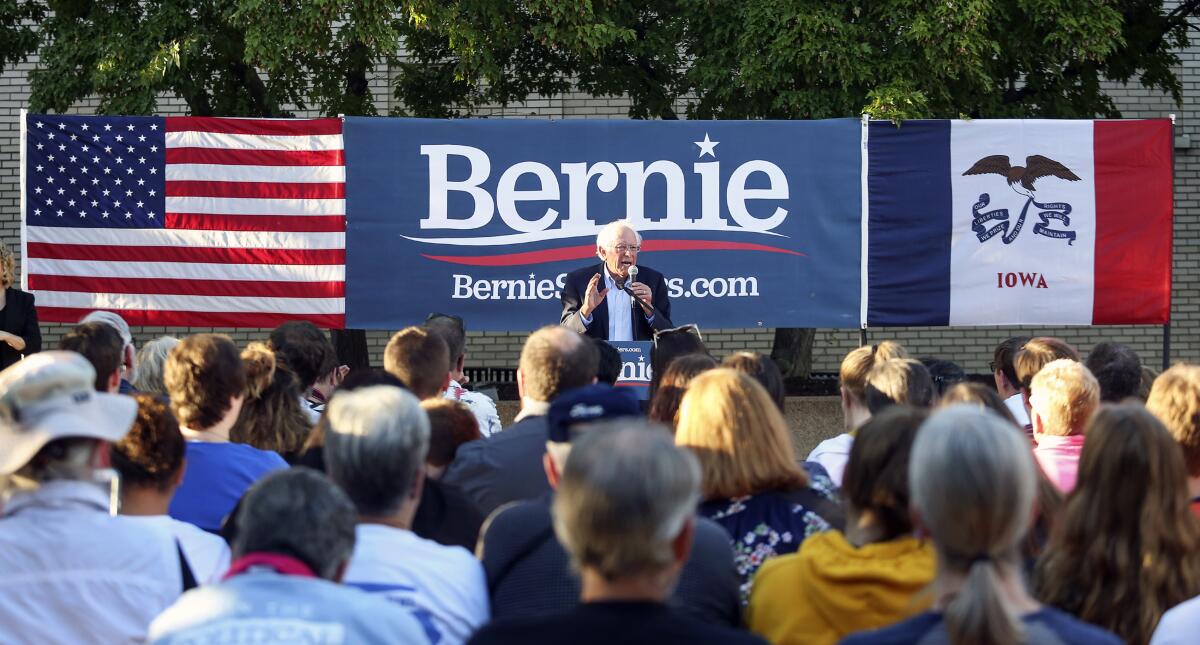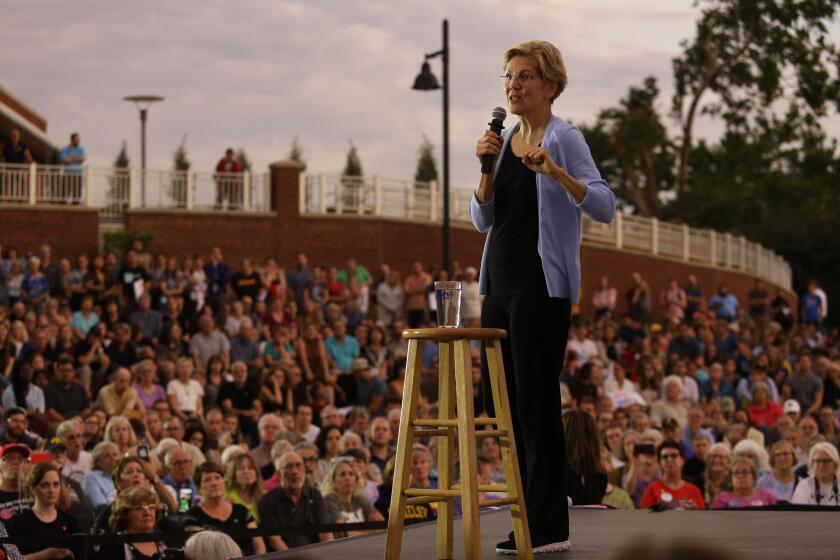Bernie Sanders proposes a wealth tax, setting up a clash with Elizabeth Warren

- Share via
WASHINGTON — Bernie Sanders announced on Tuesday a plan to tax the nation’s wealthiest households, saying it will generate more than $4 trillion over the next decade and substantially reduce the accumulated fortunes of billionaires — his version of Democratic presidential rival Elizabeth Warren’s signature issue.
Sanders, a Vermont senator, wants a 1% levy on households worth more than $32 million and proposes tax rates that would increase for wealthier people, up to 8% for $10-billion-plus fortunes.
The tax would affect about 180,000 households, or around 0.1% nationwide, according to Gabriel Zucman and Emmanuel Saez, economists at UC Berkeley, who estimated it would raise about $4.35 trillion in government revenue by the 2028 budget year.
“We are going to take on the billionaire class, substantially reduce wealth inequality in America and stop our democracy from turning into a corrupt oligarchy,” Sanders said in a statement.
U.S. Sen. Warren supports a 2% wealth tax on households worth more than $50 million and has become so well known for the issue that large crowds at her rallies around the country have lately interrupted her speeches to chant “2 cents!” reminiscent of people chanting “Build the Wall” at President Trump’s campaign events.
Warren and Sanders are friends who have steadfastly refused to criticize each other on the campaign trail. But the dueling wealth tax proposals are the clearest sign yet that they may have to compete for the Democratic Party’s liberal wing in its presidential primary.
In Iowa, Sen. Elizabeth Warren has moved into the lead. She’s grown her support with attention to detail and an ability to connect with voters.
Sanders’ plan goes further than Warren’s because it would start on fortunes worth at least $32 million, or nearly a third lower than the threshold for Warren’s plan to kick in. Warren’s plan also proposes increasing the wealth tax up to 3% on any net worth of more than $1 billion, while Sanders’ tax rates don’t top out until 8% for the richest Americans.
Zucman and Saez estimate that if Sanders’ system had been implemented in 1982, the wealth controlled by the richest Americans listed on the Forbes 400 “would be only 40% of what it is today.”
“A progressive wealth tax is the most direct policy tool to curb the growing concentration of wealth in the United States,” Zucman and Saez wrote in a letter analyzing Sanders’ proposal.
Among 2020 Democratic contenders, Bernie Sanders has attracted an unusually strong fandom among Muslims. Can they get him into office?
More to Read
Get the L.A. Times Politics newsletter
Deeply reported insights into legislation, politics and policy from Sacramento, Washington and beyond. In your inbox three times per week.
You may occasionally receive promotional content from the Los Angeles Times.











